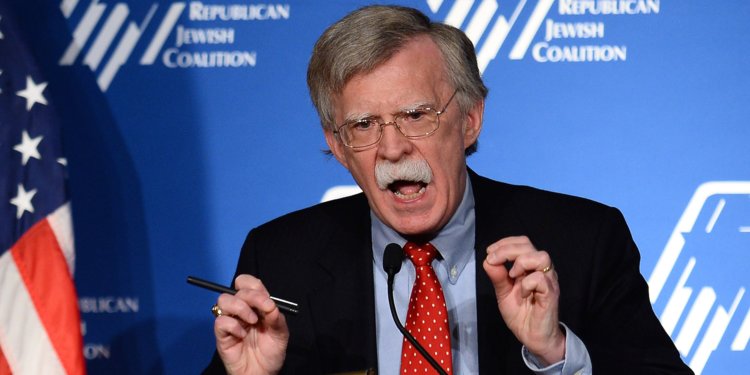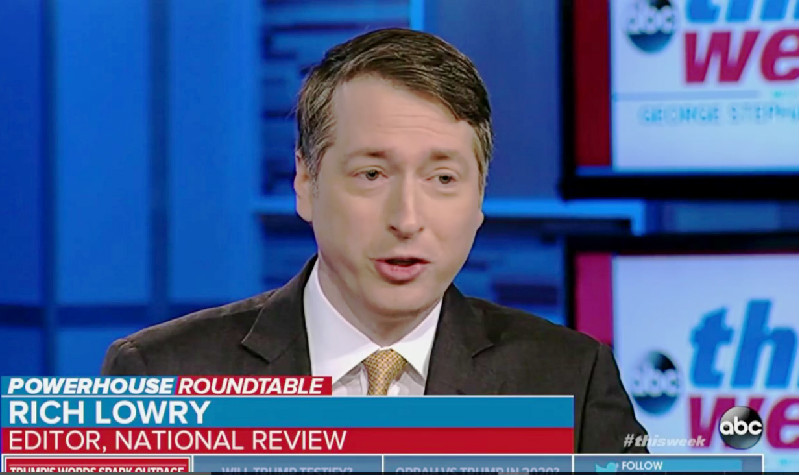
There is a common prejudice the world holds against Americans that periodically reemerges: Americans, the world whispers, are terrible at geography. As with most stereotypes, there is some truth in this. It also seems to be one of those vulnerabilities of which the US strategic elite is well aware. Certainly George Friedman[1] recognizes this lamentable state of affairs. In a February 18, 2014 article for RealClear World, “Americans Aren’t Interested in the World’s Problems,” he wrote:
The United States' geography, obviously, shapes American thinking about the world. The European Peninsula is crowded with peoples and nation-states. In a matter of hours you can find yourself in a country with a different language and religion and a history of recent war with your own. Americans can travel thousands of miles using their own language, experiencing the same culture and rarely a memory of war. Northwestern Europe is packed with countries. The northeastern United States is packed with states. Passing from the Netherlands to Germany is a linguistic, cultural change with historical memories. Traveling from Connecticut to New York is not. When Europeans speak of their knowledge of international affairs, their definition of international is far more immediate than that of Americans.
"If America is to emancipate itself from its role as a golem of foreign powers and a spiteful transnational oligarchy, Americans will have to start paying attention to foreign policy."
Friedman calls this the American “luxury of geography.” It is a luxury the rest of the world would doubtless be happy to grant to Americans, were it not that lack of knowledge of the greater world allows for unnecessary and unjustified US involvement in it, insofar as Americans provide no resistance to the excessive ambitions of their government. While most countries are concerned with securing their own territory, US military operations span the entire globe. So do US military bases. US military interventions around the globe happen as a matter of course, and though, as a Presidential candidate, Donald Trump opposed such imperialism, as President he has been a disappointment. The appointments of neoconservatives John Bolton, Eliot Abrams, and other longtime hawks cast doubt on Trump’s policy of an “America First” with a simultaneous rollback of its empire.
Given the Trump administration’s attempts to install Juan Guaido as President of Venezuela, and the bellicose rhetoric against Iran after a period of détente, particularly during Barack Obama’s second term, concern is coming to the fore that the Trump administration will continue its predecessors’ aggressive policies. Here, it is worth quoting Daniel Larison at length:
Part of…[Trump’s] anti-Iranian positioning [on the campaign trail] was to distinguish himself from Obama, who was supposedly insufficiently “pro-Israel” and “pro-Saudi” for many in the foreign policy establishment, but most of it was to show favor to the regional clients that want the U.S. to fight Iran for them. Trump has never been committed to “maintaining a Middle Eastern status quo,” because from the beginning of his presidency he made it clear that he was going to indulge and back Israel, Saudi Arabia, and the UAE [United Arab Emirates] in anything they wanted. In practical terms, this has meant giving one gift after another to Israeli hard-liners while aiding and abetting the Saudis and Emiratis in slaughtering Yemeni civilians and fighting Congress every time they try to end U.S. involvement in that horror show. It has also meant making excuses and providing cover for the numerous and growing abuses of the Saudi crown prince. This has been a massive overreaction to Obama’s extremely limited thaw in relations with Iran, and as a result the current administration is more subservient to these client governments than any of its recent predecessors. That is very bad for U.S. interests even if it doesn’t lead to a war with Iran, because it means that the U.S. will continue to enable and be implicated in our clients’ war crimes in Yemen and elsewhere. We can’t make sense of Trump’s relentless hostility to Iran and its people unless we remember to take his extreme bias in favor of these regional clients into account.
There is no strategic vision in Trump’s Iran policy, according to Larison, as it seeks blindly to grant the wishes of the hawks who have been pressing for a harder line against Iran for years. By “catering to hard-liners in his party and U.S. clients in the region,” the U.S. has come disastrously close to crossing the line into open hostilities over which critics of Trump’s Middle East policies have been sounding the alarm since he took office.
Needless to say, the geopolitical ignorance of the American public is quite convenient for John Bolton and the rest, saving them as it does from popular scrutiny. A relatively recent study revealed a striking correlation between participant’s failure to locate Ukraine on a world map and support for US military intervention in that nation. According to Dropp et al.,
[Th]e further our respondents thought that Ukraine was from its actual location, the more they wanted the U.S. to intervene militarily. Even controlling for a series of demographic characteristics and participants’ general foreign policy attitudes, we found that the less accurate our participants were, the more they wanted the U.S. to use force, the greater the threat they saw Russia as posing to U.S. interests, and the more they thought that using force would advance U.S. national security interests…
Surely many readers were already aware of this connection, given the recent history of US interventions. For example, shortly after the 2003 US invasion of Iraq, 69% of Americans still believed Saddam Hussein was involved in the World Trade Center attacks. Of course, America’s “ally” Bibi Netanyahu did his part to bring about the Iraq War. The lack of foreign policy knowledge is complicit in the uncritical stance towards intervention. It is instructive to compare American ignorance and complacency to European streets awash with mass demonstrations against the Iraq war.
Geopolitical knowledge is Herrschaftswissen, or power-knowledge, which elites have an interest in isolating and monopolizing. For in the absence of popular approval, democratic scrutiny, and accountability, backroom deals can be negotiated between trade delegations and a horizon of constraints can be imposed on domestic policy-making. Such constraints usually don’t come to the fore until the promises of newly-elected officials fade away against the inertia of more discrete long-term strategies and obligation. Meanwhile, every deal struck creating de facto conditions beyond the reach of voters becomes further leverage against the public. Want economic independence? Well, those supply chains outsourced to Vietnam just won’t make this easy.
Although the problem of geopolitical ignorance is not specific to the US, but is increasingly common throughout the Western world, it is by far the most consequential in the US. In France, an imperial tradition of explaining politics with maps still persists in an academic discourse traditionally heavily focused on political geography which frequently seeps into public debate. In Russia, Vladmir Putin often speaks publicly in geopolitical categories. Russia’s most prominent intellectual, Alexander Dugin, is the author of a tract on geopolitics (Foundations of Geopolitics). Little wonder that Putin’s realism seems so shocking and hostile to incredulous Western audiences, who are not accustomed to conceiving of politics as primarily a positioning of military bases, fleets, and short-range missiles, and who fail to see what “value-based” interventions are generally all about.
Like the deluge of propaganda that has long facilitated America’s interventions in the Middle East, the political and media rhetoric on Venezuela has exposed this core weakness of US political culture once again: Dishonest media pundits use a simplistic culture-wars binary—socialism versus “free markets”—to reduce the complexity of international politics to a kind of morality play. Policy decisions, moreover, are frequently analyzed in terms of the personalities of politicians, a psychologisation of political discourse that conveniently overlooks the role of powerful networks and their long-term interests and strategic objectives.
It is clear that a citizenry that readily accepts this distorted simulacrum of politics is not capable of issuing a veto against a foreign policy undertaken by elites that have rarely benefited the citizens, even as the latter continue to pay the price for irresponsible elite ambitions. The lack of interest in international affairs must thus be understood as a crucial vulnerability of the democratic system. If America is to emancipate itself from its role as a golem of foreign powers and a spiteful transnational oligarchy, Americans will have to start paying attention to foreign policy. Geopolitics and geography are not exotic fads for map nerds. In an inescapably global world, they must above all be understood as a cultural immune system.
Notes
[1] Founder and former chairman of Stratfor, a private US think-tank, often referred to as the “Shadow CIA” for its influence on US foreign policymaking and its specialty of ominous predictions that are difficult to separate from strategic threats.

